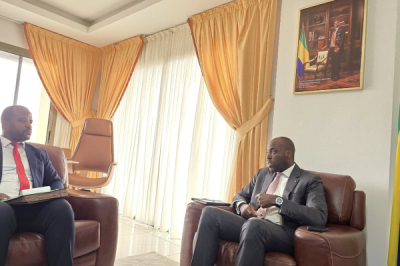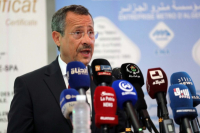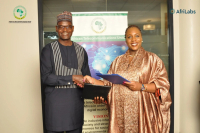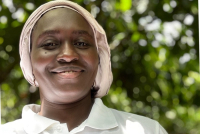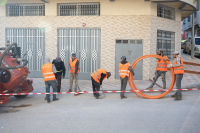The hub is set to create 500 jobs and support Morocco’s ambition to become a digital powerhouse under the “Maroc Digital 2030” strategy.
Highlights
- Morocco targets training 45,000 tech professionals by 2030
- 500 new skilled jobs to be created over four years
- Part of broader digital strategy that includes Oracle, Nokia, Cisco, and Naver partnerships
Morocco has taken a significant step toward building its digital future by signing a strategic partnership with French firm Onepoint. On July 22, the Moroccan government formalized a memorandum of understanding (MoU) with Onepoint to establish a Center of Excellence in Artificial Intelligence and Data in the Casablanca-Settat region.
Inked by key ministries and the Moroccan Investment and Export Development Agency (AMDIE), the MoU aligns with the Kingdom’s ambition to train 20,000 tech professionals by 2026 and 45,000 by 2030. The new center is expected to generate 500 skilled jobs in AI, big data, and middleware over the next four years.
Beyond job creation, the partnership aims to modernize public services, support the digital transformation of industrial SMEs, and strengthen national technological sovereignty. It also bolsters Morocco’s broader “Maroc Digital 2030” plan to become a regional digital leader.
This agreement follows recent announcements by major players like Oracle, which plans to open a Casablanca-based research center dedicated to AI and cybersecurity, creating 1,000 jobs. Similar partnerships have been signed with Naver, Nokia, and Cisco.
For Industry and Commerce Minister Ryad Mezzour, these moves reflect Morocco’s rising credibility among global tech firms. The Casablanca-Settat region is increasingly positioned as a key hub in Africa’s digital economy. The Onepoint collaboration offers Moroccan engineers the opportunity to contribute to global tech projects while developing impactful local solutions.
This article was initially published in French by Samira Njoya
Edited in English by Ola Schad Akinocho
Virginie Pouna Ngomi focuses on helping African families protect their health and belongings without complicated paperwork. She studies local needs and creates tailored insurance tools that fit African realities.
As a Cameroonian actuary and entrepreneur, Virginie launched COVA Africa in 2021. She serves as its CEO. The startup builds digital solutions that break down barriers to insurance for low-income households across Africa.
COVA Africa uses an "as-a-service" distribution model. It launched a platform that embeds insurance products into offers from merchants, mobile apps, fintech firms, and microfinance institutions. This approach makes buying insurance simple and seamless for everyday people.
The company cooperates closely with local partners. It designs products covering health, life, accidents, funerals, property, and agriculture. It also links micro-insurance to daily purchases like travel, subscriptions, and gadgets. Loyalty programs further encourage adoption. To ensure reliability, COVA Africa works with insurers in Africa and France.
Recognition followed quickly. In 2023, COVA Africa won the sixth CATAPULT Financial Inclusion Africa Program, organized by Luxembourg’s House of Financial Technology. This year, the startup joined BimaLab Africa, a pan-African insurance accelerator.
Virginie’s education laid a strong foundation. She earned a DEUG in applied mathematics in 2005 from Faculté des sciences Semlalia in Marrakech, Morocco. She completed a Master’s in Innovation Science and Risk Management that same year at Pierre and Marie Curie University in France. Additionally, she holds an actuarial engineering degree from the Institute of Statistics at the University of Paris.
Her career began in 2008 with internships at AXA Liabilities Managers and Allianz France. She then became a junior actuary at ALTIA, an insurance consulting firm, in 2010. By 2011, she advanced to senior actuarial analyst at PwC, a leader in audit, insurance, taxation, and legal services.
Between 2014 and 2021, Virginie sharpened her skills at Activa Assurances Group. There, she held diverse roles: actuary, deputy director, innovation director, and retail director.
Melchior Koba
African fintech company Flutterwave has announced a strategic collaboration with Skyee, a trusted Hong Kong-based B2B payments platform, to streamline and scale cross-border transactions between Africa and Asia.
The partnership is designed to simplify global trade for African businesses by offering faster, more transparent, and reliable payment solutions across Asian markets, further reinforcing Flutterwave’s commitment to expanding access to global commerce and empowering the continent’s small and medium enterprises (SMEs).
This collaboration follows closely on the heels of Flutterwave’s announcement, in early July, of a partnership with Beijing-based financial services provider NoraFirst, aimed at enabling seamless B2B trade payments between Africa and East Asia. It signals the fintech’s growing focus on unlocking new trade corridors across the continent and Asia.
He is reshaping Africa's trade networks through a digital approach that connects informal businesses with established industries. His journey combines innovation, strategy, and international outreach, reflecting a vision focused on modernizing local commerce.
Raphael Afaedor (photo), a Ghanaian entrepreneur specializing in distribution and e-commerce, is reshaping trade networks in Africa through a digital approach that connects informal players with industry. He is the co-founder and CEO of Kyosk Digital Services, a Nairobi-based company structuring retail trade on the continent.
Founded in 2019, Kyosk Digital Services connects small informal retailers, kiosks, farmers, and suppliers through a digital platform. This platform simplifies the distribution of essential goods while facilitating the financial and logistical inclusion of millions of economic actors.
The platform enables small shopkeepers, known as "dukas," to order food, electronics, or personal care products and receive deliveries in less than 24 hours. It provides manufacturers and suppliers with real-time visibility into the supply chain while reducing traditional logistical constraints.
In 2023, Kyosk Digital Services acquired KwikBasket, a company specializing in distributing agricultural products and providing services to farmers, commercial kitchens, and food chain participants.
Before founding Kyosk Digital Services, Afaedor co-founded the e-commerce startup Jumia Group in 2012, serving as CEO until 2014. That same year, he co-founded Supermart.ng in Nigeria, an online retailer of groceries and consumer goods.
Afaedor earned a bachelor's degree from the Czech Technical University in Prague in 2003, and a master’s degree in marketing in 2006 from the University of New York in Prague. He also holds a master’s degree in business administration and management from Harvard Business School.
His professional career began in 2004 in the Czech Republic at Monster, where he worked as a software engineer. In 2008, he joined Goldman Sachs in the United Kingdom as an investment manager. In 2009, he joined Notore, a food products company, as marketing and business development manager for West, Central, and North Africa.
Melchior Koba
• Gabon plans to restore IAI as a leading African tech training center.
• Reforms target curriculum, governance, and member state coordination.
• Move addresses aims continent-wide digital skills shortage.
The Gabonese government aims to restore the Libreville-based African Institute of Computer Science (IAI), founded in 1971, to its former status as a leading center for training high-level computer engineers on the continent. This initiative is part of the administration's broader effort to revitalize the pan-African institution.
Mark Alexandre Doumba, Gabon's Minister of Digital Economy, Digitalization and Innovation, met on Tuesday, July 22, with the IAI leadership to conduct a full review of the current situation. He reaffirmed his commitment to continuing a deep overhaul of the Institute, aligning with a pledge made by his predecessor.
“While the IAI long embodied excellence and innovation in the digital field in Africa, structural and organizational difficulties in recent years have slowed its development and influence,” the ministry stated in a press release published on Facebook.
Among the priorities discussed were modernizing training programs, implementing a new educational and managerial approach, overhauling governance, and developing a comprehensive recovery plan. The minister also announced the upcoming convening of an extraordinary board meeting with member states to approve a coordinated relaunch.
The government’s commitment comes amid a digital transformation marked by a growing demand for digital skills. According to the World Bank, 230 million jobs in Sub-Saharan Africa will require digital competencies by 2030, with a strong concentration in digital services. These opportunities will demand profiles equipped with intermediate or advanced skills.
However, a study by Talentum, a fintech specializing in human resources, indicates that most African countries still train fewer than 5,000 computer engineers per year, while demand is often ten times higher. This shortage of technical skills significantly slows the progress of digital transformation on the continent.
For now, the revival of the IAI remains a strong political will that still needs to be implemented. Questions remain about the sustainability of reform financing, the institution’s capacity to keep pace with rapid technological changes, and the effective commitment of all member states. These include Benin, Burkina Faso, Cameroon, Central African Republic, Côte d’Ivoire, Gabon, Niger, Senegal, Chad, Togo, and Congo.
Isaac K. Kassouwi
Yao Baku uses technology to simplify business operations, automate vital processes, and turn internal company challenges into effective solutions.
Yao Baku is a Ghanaian entrepreneur specializing in financial technology. He co-founded and currently leads Regulon, a start-up focused on streamlining onboarding and automating regulatory compliance.
Founded in 2024, Regulon is building a platform to cut customer onboarding time from weeks down to seconds across African and European markets. The platform centralizes compliance checks and lowers the costs tied to these procedures.
Regulon offers several automated tools. Its platform features an identity verification system that checks companies and beneficial owners against over 140 official registers and multiple data sources to verify entity legitimacy. It also includes a compliance analyzer and a fake-document detection system. Additionally, the platform assesses the online presence and activities of client firms.
Regulon employs "Artificial Narrow Intelligence," a focused AI that collects, synchronizes, and verifies documents. A virtual agent named Rosa manages this process, automating onboarding decisions and ensuring proper data handling.
Before Regulon, Yao Baku co-founded Pennysmart, another fintech start-up, in 2018, where he served as chief growth officer until 2022. He earned a Bachelor's degree in Real Estate from Kwame Nkrumah University of Science and Technology in 2015. Later, in 2022, he completed a postgraduate diploma in Information and Communication Technology from the Ghana Institute of Management and Public Administration.
In 2020, Baku joined Flutterwave as a Product and Growth Associate. From 2022 to 2024, he worked as product manager at London-based Verto, a payment solution helping businesses send funds internationally.
This article was initially published in French by Melchior Koba
Edited in English by Ange Jason Quenum
-
Algeria plans a digital portal and centralized system to monitor public infrastructure projects nationwide.
-
The system will track real-time progress, detect delays and cost overruns, and enhance transparency.
-
Authorities aim to improve public investment performance and tighten control over budgets through digital tools.
Algeria moves to modernize its public works sector by adopting digital technology to boost project management. The Ministry of Public Works and Basic Infrastructure announced plans on July 19 in Algiers to launch a digital portal and centralized system for overseeing infrastructure projects across the country.
Minister Lakhdar Rekhroukh said the system will serve as a real-time dashboard to aid quick decision-making and raise implementation efficiency. He explained that the platform will monitor every project phase at both central and local levels, providing an instant snapshot of work progress.
The two digital tools will help stakeholders spot delays and cost overruns promptly while delivering actionable data to administrators, project engineers, financial controllers, and local officials. This access aims to make project management more efficient and transparent.
This digital move fits a broader government effort to digitize public procurement in Algeria. The infrastructure sector faces issues like chronic delays, unexpected cost hikes, and opaque monitoring—factors that hinder public investment and strain state finances.
Developed by the French Treasury’s National Equipment Fund for Development(CNED), the platform combines performance indicators and automated reports. It links spending directly to actual progress on project sites.
By centralizing and updating information instantly, the system will improve cost control, help meet deadlines, and boost transparency in public fund usage. Officials expect it to lay foundations for stronger investment governance and higher quality infrastructure delivery.
This article was initially published in French by Samira Njoya
Edited in English by Ange Jason Quenum
The partnership directly addresses several systemic barriers slowing Africa’s digital transformation—particularly low internet access, weak innovation support systems, and fragmented regulatory environments.
AfriLabs, an African network of innovation hubs, has signed a Memorandum of Understanding (MoU) with the African Telecommunications Union (ATU), the specialised organ of the African Union in the field of Telecommunications/ICTs, to drive inclusive digital innovation across the continent. The partnership, announced July 18, brings together ATU’s 52 member states and AfriLabs’ ecosystem of over 500 hubs spanning 53 African countries to empower local solutions, close digital divides, and catalyse economic transformation.
“This collaboration with AfriLabs seeks to provide a framework that enables innovators to focus on solving real problems rather than battling regulatory barriers,” said John Omo, Secretary General of ATU. “Our entrepreneurs have the ideas and resilience, but they face fragmented regulations and limited continental visibility.”
Signed at ATU’s Nairobi headquarters, the agreement marks a critical step toward bridging Africa’s widening digital gap. It will support joint programs and communication across both organisations’ networks, such as integrating AfriLabs' capacity-building programs with ATU-led initiatives, like the Africa Innovation Challenge. It will also nurture innovation in emerging sectors like mobile internet and 5G.
Crucially, the MoU includes a framework for strengthening intellectual property (IP) protection for African innovators. The two bodies will advocate for startup-friendly IP policies and promote commercialization strategies, ensuring that African innovations are safeguarded and scaled both locally and globally.
The collaboration is aligned with the African Union’s Digital Transformation Strategy for Africa 2020–2030, which is a continental blueprint designed to leverage digital technologies for inclusive development and economic growth across Africa. By aligning regulatory support with grassroots innovation, the partnership aims to ensure this growth translates into inclusive digital services, thriving tech ecosystems, and scalable African solutions.
Hikmatu Bilali
She works on projects in Senegal that focus on education and digital tools, always considering local practices and the specific needs of communities.
Ndeye Amy Kebe (photo), a Senegalese social entrepreneur and expert in information and communication technologies applied to agriculture, founded and directs Jokalante. Her social enterprise received the Impact Award at Challenge+ Dakar 2025.
Founded in 2016, Jokalante focuses on digital inclusion and agriculture. It provides farmers, herders, and rural communities with tools to access technical, climate, and health information, regardless of language or literacy. The company contributes to food security and climate change adaptation through accessible educational content and digital tools. It also facilitates dialogue between field actors and experts.
Jokalante developed a multichannel platform integrating several solutions. It broadcasts voice messages and SMS in Wolof, Serer, Pulaar, Diola, Mandinka, French, and English for wide dissemination to rural populations. It also offers an interactive voice response service for phone access to advice without an internet connection.
Users can ask questions, report difficulties, or share observations through the platform, which strengthens awareness efforts. Since 2024, Jokalante has deployed Nafoore, a voice chatbot powered by generative artificial intelligence that adapts responses based on weather, soil type, or crops.
Kebe also owns Caman, a vocational training organization launched in 2018. She earned a master's degree in education and adult training from the University of Lille in 2013.
She began her professional career in 2008 as a local accounting manager at the Agence universitaire de la Francophonie. In 2014, she became an e-learning project manager at the Institut universitaire de technologie et de commerce (ITECOM) in Senegal. Between 2014 and 2015, she worked as an instructional designer at the Virtual University of Senegal.
Melchior Koba
Orange operates in 17 countries across the Middle East and Africa (MEA) region, with 16 of those in Africa. The company currently offers fiber internet services in 10 of these markets.
Orange Middle East and Africa (OMEA) reported 1.4 million fiber-optic internet subscribers in 2024, a 28% increase from 2023. The data comes from the company's 2024 Corporate Social Responsibility report, published July 3.
While OMEA did not specify the exact driver of this growth, the company invested $1.4 billion in its regional network during the year. This investment covered fixed, mobile, and next-generation technologies. The growth reflects a digital transformation with increasing demand for high-speed connectivity from both businesses and individuals. By the end of 2024, Orange had already extended fiber coverage to 4.9 million households in the region to meet this demand.
"For Orange, creating sustainable value first means enabling as many people as possible to access connectivity, an essential digital service. To achieve this, we deploy and operate fixed and mobile networks on a global scale, in Europe, Africa, and the Middle East. For businesses, operators, and content providers, we offer an optimized global network and next-generation connectivity solutions," Orange Group stated in its 2024 integrated annual report.
Orange views fixed broadband, including ADSL, fiber, and radio networks, as a key growth driver in Africa and the Middle East. For example, in a July 2024 article, the company announced a 125 million euro ($145.5 million) investment in fixed networks by 2025. This investment aims to connect an additional 800,000 households to fiber, reaching a total of 1.3 million fiber customers in the region. An additional 100 million to 200 million euros were also planned to strengthen international connectivity infrastructure, particularly submarine cables.
Orange provides fiber internet services in 10 countries across Africa and the Middle East: Senegal, Mali, Guinea, Côte d’Ivoire, Burkina Faso, Liberia, Egypt, Morocco, Jordan, and the Democratic Republic of Congo. The company's fixed internet customer base also includes 1.6 million households with 4G or 5G fixed wireless access and nearly one million households connected via ADSL.
Fixed broadband revenue in the region increased by 19.5% between 2023 and 2024. This contributed to Orange OMEA's total revenue of 7.683 billion euros, an 11.1% increase from 2023. The region accounted for 19% of the Orange Group's total revenue.
Isaac K. Kassouwi
More...
The Africa Money & DeFi Summit West Africa is set to return to Accra on September 24–25, 2025, bringing together top fintech and crypto stakeholders from across the continent and around the world for two days of networking, business development, and investment exploration.
To be held at the Mövenpick Hotel, the summit will connect Africa’s rapidly evolving fintech, decentralized finance (DeFi), and Web3 ecosystem with global investors, technology providers, and industry pioneers.
Startups will gain exposure to investors and accelerators, while corporates and regulators will explore partnerships and emerging policy frameworks in areas like digital currencies, open banking, and responsible crypto innovation.
Lamine Barro, a young Ivorian entrepreneur, is using technology to transform how African youth learn and work. Through his startup Etudesk, he blends data, accessibility, and digital tools to build skills and drive digital transformation across West Africa.
Barro, founder and CEO of Etudesk, launched the company in 2016. Since then, it has grown into a key player in the digital education sector, supporting both public services and private organisations with data-driven solutions.
Etudesk offers a platform that centralises and updates socio-economic and urban data in real time. Governments, investors, and businesses use it to make informed decisions and better understand local dynamics. But the company’s impact goes further—especially in the fields of education and employment.
One of its flagship tools is Etudesk LMS, a learning management system designed to boost the skills of African talent. The platform lets users create, manage, and distribute educational content. Organisations and companies can build training programs that combine videos, quizzes, documents, and assessments.
In March 2025, Etudesk launched a custom data platform for Côte d'Ivoire's Agence Emploi Jeunes (AEJ). The system integrates AI-driven diagnostics that assess each user’s profile, skills, and goals to offer personalised recommendations—a tool aimed at matching youth with job opportunities that fit their aspirations.
Beyond Etudesk, Barro plays a wider role in the Ivorian tech ecosystem. He is co-founder and vice-president of #Ci20 (Côte d'Ivoire Innovation 20), a coalition of leading technology firms. He also serves on the scientific council of Mission Laïque Française, a French-based non-profit that operates schools around the world.
Before entering tech, Barro studied biology. He earned his bachelor’s degree from the Université Péléforo Gon Coulibaly in Korhogo in 2015.
This article was initially published in French by Melchior Koba
Edited in English by Ange Jason Quenum
The Democratic Republic of Congo (DRC) has launched a blockchain-powered platform to combat fake diplomas and speed up slow administrative procedures. The new digital solution, called “e-Diplôme,” aims to secure and digitise the issuance and verification of state diplomas.
The government unveiled the initiative on July 18 during a Council of Ministers meeting in Kinshasa.
“The e-Diplôme platform represents a decisive turning point in the modernisation of the Congolese education system,” said Minister of Communication and Media Patrick Muyaya Katembwe. “This major step towards transparency, modernisation, and digital sovereignty positions the DRC’s education system as a model of governance in Central Africa.”
Accessible at www.schoolap.cd, the platform allows centralised, digital management of academic records. Each diploma will be stored and authenticated using blockchain technology, enabling instant online verification by graduates, employers, universities, and embassies.
The system ensures permanent digital archiving, protecting records from data loss, forgery, and physical damage.
The move comes as the DRC—like many African nations—struggles with rampant diploma fraud. The e-Diplôme platform is part of a wider government push to modernise public administration, strengthen digital sovereignty, and digitise essential public services.
By removing paper documents and manual processing, the system aims to streamline interactions between schools, ministries, and recruiters. It will reduce verification delays, limit human errors, and simplify procedures for graduates.
This article was initially published in French by Samira Njoya
Edited in English by Ange Jason Quenum
In launching the ACTS AI Institute, Africa is making a clear statement: the future of AI on the continent will not be outsourced. It will be developed by Africans, for Africans—rooted in local values, driven by local needs, and shaped through global collaboration.
The African Centre for Technology Studies (ACTS) has launched the ACTS AI Institute (ACAII), an initiative aimed at advancing responsible, African-centered AI research, innovation, and governance. Positioned as a continental hub for ethical and inclusive AI, the Institute seeks to empower local communities, drive sustainable development, and ensure that AI technologies reflect Africa’s unique values and priorities.
For the Executive Director of ACTS, Prof. Tom Peter Migun Ogada, “The Institute builds on the experience and network consolidated over a period of five years, since ACTS started implementing projects related to development and deployment of responsible AI solutions and related policies. This launch is therefore meant to enable us to do what we have been doing better, with a wider mandate across the continent.”
Backed by the AI for Development (AI4D) program—with support from the International Development Research Centre (IDRC), the UK’s Foreign, Commonwealth & Development Office (FCDO), and the Swedish International Development Cooperation Agency (SIDA)—ACAII builds on a foundation laid by the AI4D Scholarship Program. This initiative has already enabled researchers from historically underrepresented communities to design and scale AI solutions tailored to African contexts.
At the heart of the Institute’s mission are five strategic pillars: responsible AI solutions, AI policy and governance, AI and jobs, capacity building, and data science. Through these, ACAII aims to address critical challenges across agriculture, healthcare, education, and climate resilience. For example, the Institute is developing AI-driven weather prediction models and crop yield tools that can assist Africa’s 60% smallholder farmers, as well as telemedicine platforms that expand access to healthcare in remote communities.
The Institute also sees AI as a vehicle for economic inclusion and transformation. By exploring labor market trends and encouraging AI-driven entrepreneurship, ACAII aims to equip young Africans with the tools to create new industries and jobs, rather than be displaced by automation.
This people-first approach is echoed in ACAII’s dedication to education and training. The Institute is actively working with African policymakers, researchers, and educators to develop curricula and training programs that will build long-term human capacity in AI governance, ethics, and development.
To ensure its impact is felt across the continent, ACAII is building a wide coalition of partners—from government and academia to civil society, the private sector, and the media. This ecosystem approach is key to scaling innovations responsibly and ensuring the benefits of AI reach those often left behind by previous waves of technological change.
Despite growing interest in AI, Africa still lags in global AI development. The Oxford Insights Government AI Readiness Index (2022 edition) reported that Sub-Saharan Africa’s average score was approximately 29.4, which is significantly below the global average of 44.6.
ACAII is actively working to close these gaps by developing Africanized AI policy frameworks, ethical standards, and localized toolkits to support responsible scaling.
Hikmatu Bilali






